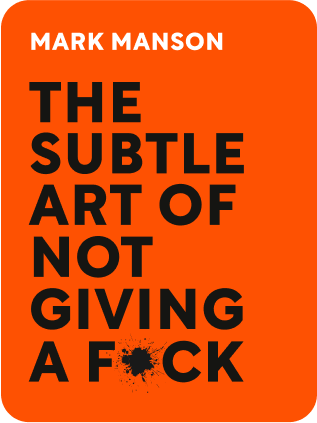

This article is an excerpt from the Shortform book guide to "The Subtle Art of Not Giving a F*ck" by Mark Manson. Shortform has the world's best summaries and analyses of books you should be reading.
Like this article? Sign up for a free trial here .
How can accepting death help you focus on what matters in life? What are some things people do to compensate for the fear of death?
When you accept the reality of death, you will realize that time spent feeling fear, shame, and embarrassment is time wasted. Instead, you should make decisions and choose your values with the reality of death in mind.
Keep reading to learn how accepting death will enhance your life.
Accepting Death Enhances Life
We prefer not to think or talk about death because we fear it. But it is the yardstick we use to measure our life and its meaning. Without death providing perspective, our life and values wouldn’t mean anything.
When Mark Manson, author of The Subtle Art of Not Giving a F*ck, was a young adult, a friend died at age 19 from diving off a cliff during a party. After struggling with the impact of this loss for a long time, Manson concluded that, given the inevitability of death, most of the things he spent time worrying about — fear, shame, embarrassment, and even pain — weren’t significant in the scheme of things. The experience of accepting death changed his life, as he began to discard his insecurities, and focus on more important things.
Various religions and philosophies encourage connecting with mortality. Stoics advised keeping death in mind to appreciate life and put problems into perspective. Some types of Buddhism teach meditation as a way of preparing to die.
Mark Twain wrote: “Fear of death follows from the fear of life. A man who lives fully is prepared to die at any time.”
Accepting your mortality means getting rid of superficial values and considering what impact your life has made.
- When we feel entitled, we put ourselves ourselves at the center and view everything and everyone from the perspective of how it affects us. This is our current social/cultural dynamic. We feel society should serve us, we try to impose our views on others, and feel we deserve benefits without earning them.
- Instead, you should choose your values and make decisions with the reality of death in mind. For instance, being part of something greater than yourself, caring about something beyond yourself, believing in something greater. These kinds of values are the ones that bring happiness.
Instead of feeling a need to be extraordinary because society celebrates only the extraordinary, you need to realize that fulfillment comes in questioning yourself, and choosing your own values — choosing what to give a f*ck about.
Confronting the reality of death teaches you to prioritize what’s important, and stop chasing or worrying about trivial things.
The Fear of Death
To deal with the fear of death, people often come up with ways to leave a legacy, by putting their name on something, contributing to a cause or doing something that will be remembered.
Focusing on a legacy may or may not be a positive thing. Psychologist and author Ernest Becker argued that we should instead confront the inevitability of death, and focus on having better values in life.
Becker was a professor of anthropology in the sixties when he got colon cancer. In order to cope with the fact that he was dying, he researched and wrote an influential book, The Denial of Death, about coming to terms with death.
He argued that because humans, unlike animals, have the ability to conceptualize past and future, and to imagine a future in which we no longer exist, we experience “death terror.” This anxiety about death underlies everything we do.
We have two selves, a physical self and a conceptual self, which is our identity or how we see ourselves. Because we know our physical self will die, we try to build a conceptual self or identity that will live on.
For instance, people name buildings after themselves, or spend time contributing to the welfare of children and others. Becker refers to these as immortality projects. But according to Becker, there’s a downside: Wars, acts of terror and mass murder, revolution occur when immortality projects conflict.
While our immortality projects express our values and meaning in our lives, we can never completely suppress our fear of death.
A way we distract ourselves from the inevitability of our death is by giving too many f*cks about things and feeling entitled. But giving a f*ck only about important things is part of accepting our mortality.
Becker argued that instead of focusing on immortality projects, you should question the identity you’ve created, and strive to accept the reality of death. Instead of futilely pursuing immortality, you’ll be free to choose more meaningful values in life.

———End of Preview———
Like what you just read? Read the rest of the world's best book summary and analysis of Mark Manson's "The Subtle Art of Not Giving a F*ck" at Shortform .
Here's what you'll find in our full The Subtle Art of Not Giving a F*ck summary :
- How to clarify what's important to you (and not just what you think should be important)
- Why it's okay for things to not always go well in life
- Why you need to care about fewer things






